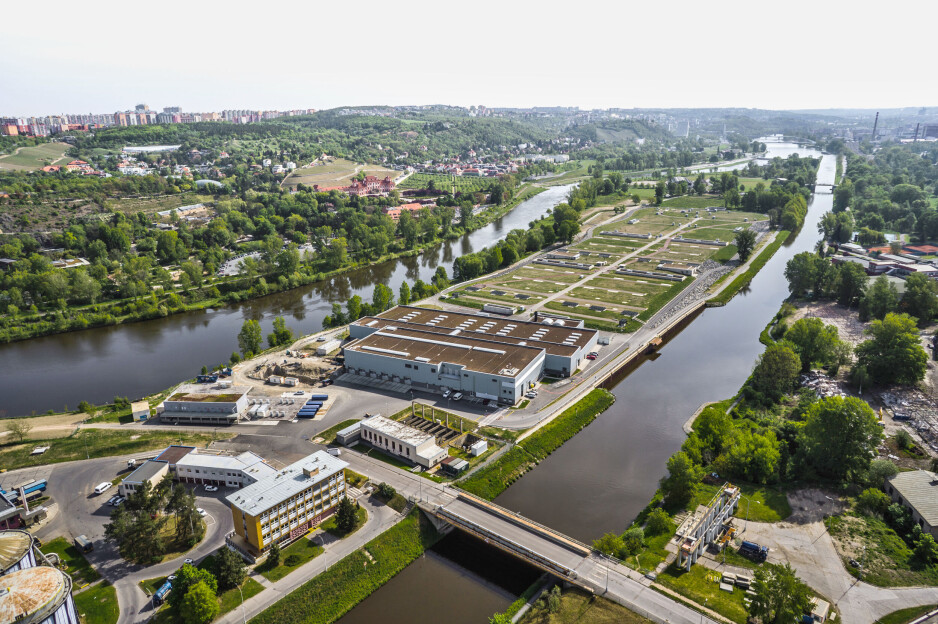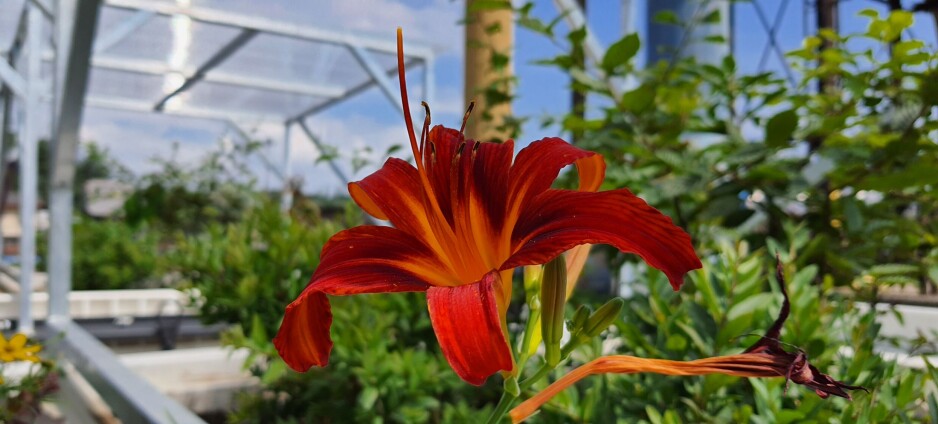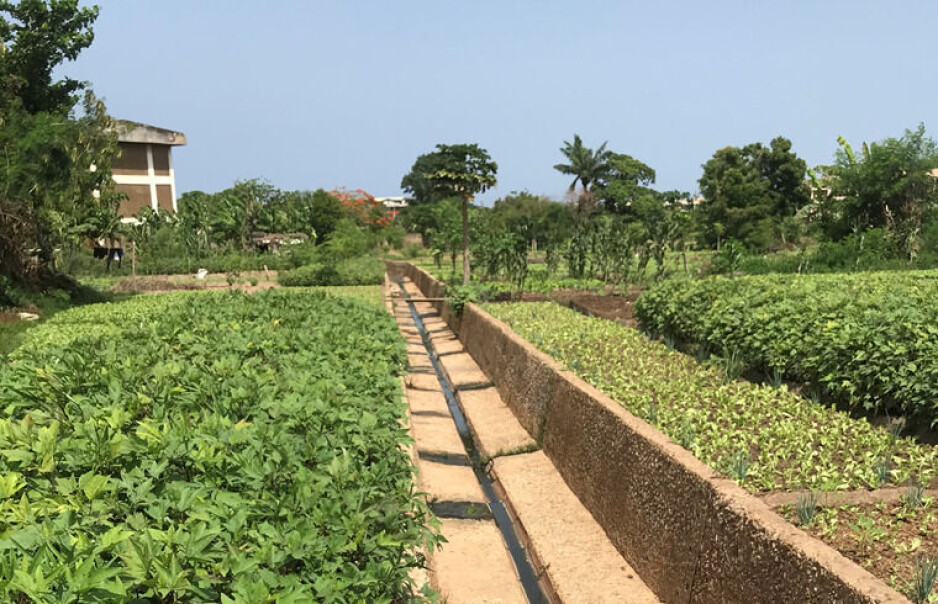THIS ARTICLE/PRESS RELEASE IS PAID FOR AND PRESENTED BY SINTEF - read more

It's not enough to save water – we must also reuse it
Is it safe to use treated wastewater to irrigate lawns and vegetable crops?
Oslo has stopped its fountains and all residents are being encouraged to use less water. Rainfall shortages have depleted water reserves in eastern Norway.
This is unusual for us, but a familiar challenge in other parts of the world. At the moment, we cannot afford to squander our drinking water.
A global water crisis
Clean water is becoming a scarce resource, and one in four people in the world have no access to a safe source of drinking water. Population growth and climate change are making water shortages even worse.
For this reason, we must think innovatively and utilise our water resources more intelligently.
‘Wider Uptake’ is an EU-funded project that is testing a variety of ways of reusing water resources in five different countries.
"The barriers that inhibit water reuse are common to many countries, so our aim is to identify the best solutions together," Herman Helness says. He is a senior research scientist and coordinator of the Wider Uptake project.
According to Helness, the issue here isn’t primarily one of technology. Obstacles are mainly rooted in existing regulations and a lack of business models.
For example, treated wastewater can be used to irrigate urban green spaces and agricultural land, and this is now being tested in demo projects in Ghana, the Czech Republic and Italy.
“In order to use wastewater for large-scale irrigation, we first have to show that the quality of the water is good and that it doesn’t contain any harmful substances,” Helness says.

Green parks in Prague irrigated using wastewater
The Czech Republic has also been suffering from a lack of rain and water shortages for some time, and there is great willingness to try out new solutions.
Trials being carried out in Prague using wastewater to irrigate city parks are revealing promising results. The first step is t to demonstrate that it is both safe and profitable for the community.
Scientists at the city’s wastewater treatment plant are testing a variety of water qualities for the irrigation of lawns, bushes and flower beds. They use untreated water from the river and three different qualities of water taken from the plant – treated, extra pure and polished.
To date, testing has shown that all these water types are good enough for irrigating plants and flower beds.
The regulations need changing
The technical solutions are in place and the water quality has been shown to be acceptable. The next challenge is to amend the regulations so that an effective business model can also be established.
It is currently not permitted to use wastewater for irrigation.
The EU has issued a separate directive governing the reuse of wastewater, but its application must be approved at national level. Researchers have thus held several meetings with the authorities, including the Mayor of Prague and the Czech Ministry of Agriculture.

Treated Wastewater for urban farming in Ghana
Access to clean water is a major challenge in Ghana too.
The country has experienced continuous population growth and urbanisation since the 1950s, and shortages of treated water are a problem, especially in urban areas. However, there is no national strategy for reuse of water, yet untreated wastewater is currently used to irrigate vegetable crops in urban areas.
Analyses show that the vegetables do not contain elevated values of harmful substances, but many people are sceptical of eating vegetables that have been watered using wastewater.
“An information campaign is going to be run to persuade people that the vegetables being produced from the use of treated wastewater would not be harmful to their health,” says Gordon Akon-Yamga, a researcher at Ghana’s Council for Scientific and Industrial Research (CSIR), which is the country’s national research and development organisation. “It’s worse for your health not to eat any vegetables at all.”
The long-term aim is to formulate public policies that promote wastewater treatment plants to incorporate water reuse in their design and ensuring that farmers get better incomes to enable them to pay for the treated wastewater.
It will also be necessary to establish national standards for various forms of water reuse. Currently, Ghana applies WHO standards for limits on the concentrations of harmful substances in water.
Hardly profitable in Norway
So, when will we start to reuse wastewater in Norway?
“It’s far from certain that this will be profitable in the near future,” Herman Helness says.
Wastewater decontamination is a process that demands a lot of energy. We still have large volumes of water here in Norway, and it will not be sustainable to dedicate resources for this purpose.
There is much more to be gained by improving the distribution network and preventing treated water from leaking from the supply pipes.
Other relevant initiatives for saving water include the use of grey water (derived from sinks, showers and washing machines) for toilet flushing.
The Norwegian pilot projects incorporated as part of Wider Uptake are thus looking into the recovery of other resources from wastewater, including phosphorous that can be used in fertilisers.
Defining what it is to be ‘water-smart’
“Common to all pilot projects incorporated as part of the project is the need to show that solutions are sustainable and ‘water-smart’,” Helness says.
The researchers are thus developing a method for measuring so-called ‘water smartness’ and sustainability.
Researchers have defined a water smart society as “a society in which the true value of water is recognised and realised, all available water sources are managed in such a way that water scarcity and pollution are avoided, and close loops and symbiosis are created to foster a circular economy and optimal resource efficiency.”
“It is possible to be sustainable without being water-smart, but not the other way round,” Helness says. “A water-smart solution is sustainable and must also be financially profitable for the water industry.”
The key here is to achieve better interaction between the water sector and the industries that are planning to use the resources derived from the water.
To date, the demo projects have demonstrated that there is a lot to be gained from smarter utilisation of water.
See more content from SINTEF:
-
Saving seagrass and French oysters: New solutions give new life to Europe's coastal areas
-
What does ultra-processed food do to our gut flora?
-
This new device can make it cheaper to heat your home
-
Propellers that rotate in opposite directions can be good news for large ships
-
How Svalbard is becoming a living lab for marine restoration
-
New study: Even brand-new apartments in cities can have poor indoor air quality





































